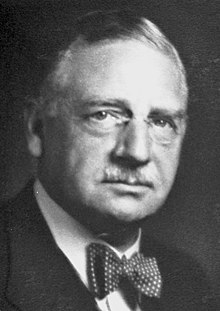Otto Loewi
Otto Loewi | |
|---|---|
 | |
| Born | June 3, 1873 Frankfurt-am-Main, Germany |
| Died | December 25, 1961 |
| Nationality | German |
| Citizenship | Austrian (after 1905) American (from 1946) |
| Alma mater | University of Munich University of Strassburg |
| Awards | Nobel Prize in Physiology or Medicine (1936) |
| Scientific career | |
| Fields | Medicine, Pharmacology |
| Institutions | Graz University |
Otto Loewi (June 3, 1873 - December 25, 1961) was a German doctor.[1] He won the 1936 Nobel Prize in Physiology or Medicine, along with Henry Hallett Dale, for their discoveries about chemical transmission of nerve impulses [2]
In his most famous experiment, Loewi took fluid from a frog heart with a slowed beat and applied it to another. That slowed the second heart. This showed that synaptic signalling used chemical messengers.
It is now known that there are two different kinds of nerve synapses. One kind releases chemicals, and is a neurotransmitter synapse. The other is an electrical synapse which transmits voltage charges over gap junctions between nerve cells.
References
- ↑ "Biography of Otto Loewi". The Nobel Foundation. Retrieved 2009-01-05.
- ↑ "The Nobel Prize in Physiology or Medicine 1936". The Nobel Foundation. Retrieved 2009-12-21.